Einstein Legacy Student Scholarship Recipients
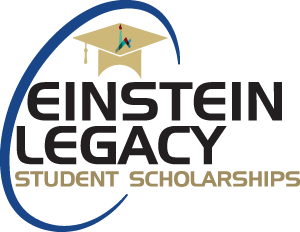
The following students received Einstein Legacy Student Scholarships.
Their stories about their time at Hebrew U shows the impact of the scholarships on their journey. Scroll down to see all students, or click on each of the following names to drop down to their story:
Noa Rosenthal Horesh
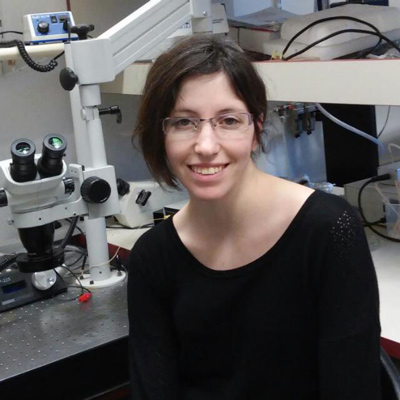
A PhD student at Hebrew University, Noa Rosethal Horesh, 29, is studying in the Department of Medical Neurobiology, focusing on mental health disorders. She was the recipient of the Faye and Max Warshafsky Medical Research Scholarship.
What is your life like in Jerusalem?
I live in in a quaint apartment off-campus in Jerusalem, with my husband and our very friendly dog (Kobi). Since starting our PhDs (my husband’s field is organic chemistry), we rented this renovated apartment which has a balcony on which I could finally plant a small garden of spices and flowers so that I get to look at beauty every time I get up in the morning.
Furthermore, I just gave birth to a healthy beautiful baby girl named Ya’ara (which means honeycomb).
Tell us about your studies program.
I’m currently in my second year of PhD studies at Hebrew University under the supervision of Prof. David Lichtstein in the Department of Medical Neurobiology. My study focuses on mental health disorders, specifically on the manic-phase of Bipolar Disorder (BD).
This disease causes unusual shifts in mood, energy, activity levels and the ability to carry out day-to-day tasks. These moods range from periods of extremely “up,” elated, and energized behavior (known as manic episodes) to very sad, “down,” or hopeless periods (known as depressive episodes). These distinct periods are called “mood episodes” and they are drastically different from the moods and behaviors that are typical for a person. Despite the availability of a broad range of antipsychotics, antidepressants and mood stabilizers, the treatment of BD remains inadequate. Some patients do not respond to the treatment and many suffer from frequent relapses. Therefore, finding another form of treatment is both crucial and beneficial.
How about your research?
I study a protein that operates in every cell membrane (the Na+, K+-ATPase) but is highly concentrated in neuronal cells. Previous studies in our laboratory have shown that this protein is involved in bipolar disorders.
In my PhD work, I utilize heterozygous knockout mice for different subunits of the protein and study behavioral changes induced by perturbations in their activity. I also plan to elucidate the downstream molecular signaling events in the brain leading to this behaviour. My hope is that the results of my work will lead to new diagnostic methods, as well as to a novel therapeutic target for this malady.
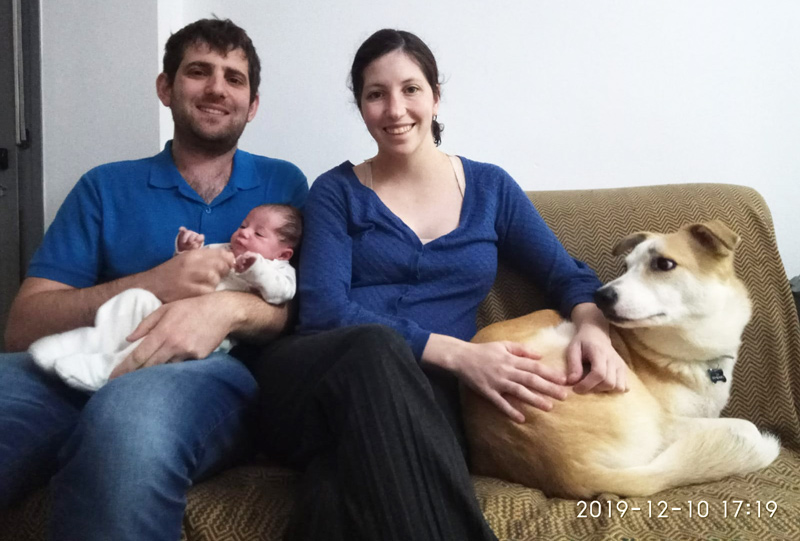
How has the scholarship helped you?
Thanks to the generous donation of The Faye & Max Warshafsky Medical Research Scholarship Fund, I can give my new daughter a good life without worrying about our income while still doing what I love. I’m really grateful for this substantial support and want to emphasize the great significance for me of this prize.
Jamie Magrill
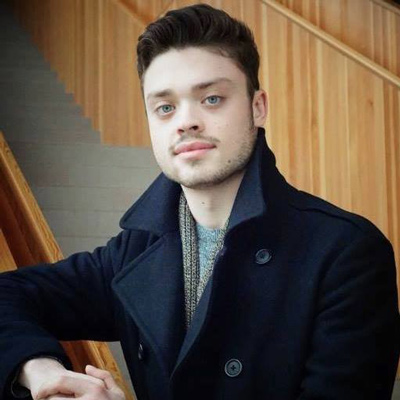
Jamie Magrill from Vancouver was awarded the Persiko Family Legacy Scholarship from CFHU. This is the article about his year with the Dor lab at the The Hebrew University of Jerusalem which was published in the Times of Israel newspaper on October 2, 2019.
Working and Learning Abroad: A MASA Journey
Rosh Hashanah prompts us to reflect on our triumphs and failures of the past year, and to consider our goals for the coming year. We often find that the next year is a continuation of the same set of circumstances and the same environment, so we’re likely to continue in the same familiar patterns, despite our best intentions.
One way to push yourself to grow is to invite challenge by uprooting yourself and moving somewhere new. That’s what I did when I moved halfway across the world from Canada with Masa Israel Journey for a post-undergraduate six-month research internship in Israel.
Living on my own for the first time brought a lot of changes and challenges. It also made me feel more self-reliant and accountable. I faced the reality that if I was too tired to go get groceries at Super-Sal, my pantry would simply remain empty. I enjoyed greater professional responsibility as well, managing my own research project in the diabetes research lab of Dr. Yuval Dor, at the Hebrew University of Jerusalem’s Hadassah Ein Kerem campus.
But I was prepared for all that. One thing I wasn’t as prepared for were the differences in workplace norms and customs. I suddenly had to pick up a whole new set of unwritten rules — at the same time as I was learning a new language. It was humbling to sit in the cafeteria and understand just fragments of the conversation swirling around me. But as I struggled through the unfamiliar terrain, I discovered a resourcefulness I didn’t know I had. I learned that I can adapt, that I was adapting, and that I’d be able to do the same with any future challenges that come my way.
Feeling like a foreigner and being forced to relearn things I thought I knew made me abandon many of my preconceptions and open my mind to new viewpoints. And I came across plenty of these. In North America, it’s easy to stay within a circle of friends who think the same way you do. You can remain in your ideological echo chamber, avoiding anyone who is not like you politically, religiously, or culturally. Because Israel is such a small country, Israelis don’t have that luxury. In my lab, I worked with folks from all walks of life — across the spectrum of Israeli culture — and they all spoke their minds. The smorgasbord of ideas was very liberating. Every person I met showed me a different perspective on each of the questions and issues I wanted to discuss that day at work.
As I discovered these more nuanced truths, I also discovered new aspects of Jewish culture. Growing up in Vancouver, Canada — a city with a relatively small and homogenous Jewish population — and attending a Reform synagogue on High Holidays, I looked through a small window into Jewish culture. In Israel, I had the opportunity to walk onto a bus each day filled with folks of every denomination, sect and country of origin, reflected in their clothing, language and even tone of voice. Interacting with the diverse sectors of Israeli life also helped to get me thinking about how I define my own relationship with Judaism – and that process isn’t finished — in fact, it’s only beginning.
I found working abroad so eye-opening and enjoyable that I decided to pursue another research opportunity at the Hebrew University of Jerusalem, as a masters student in the International Graduate Program for the Biomedical Sciences. While in Israel, I learned that to grow, we must embrace challenges, discover the unknown, and seize new opportunities. And while the foreignness of this environment has lost its edge, I know I haven’t exhausted all I have to gain from the experience of being in Israel.
Jessica Horowitz
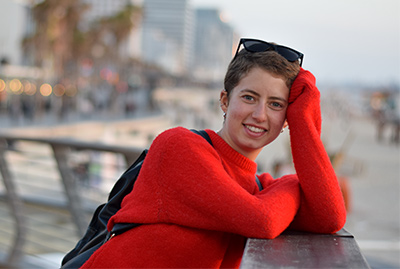
Jessica was featured in a video that the Hebrew University produced about the International School of Agriculture Sciences. Click here to see the video.
My name is Jessica Horowitz and I was the recipient of one of the Canadian Friends of the Hebrew University’s Merit Scholarship sponsored by the Persiko Family in Toronto. I am writing to fill you in and share some of my experiences abroad thus far.
I have already completed my first semester, and I can personally confirm the motto stated on the Hebrew University’s website: “Hard but worth it.” While it took some time to adjust to the lifestyle and coursework, I am proud to share the comfort and ease at which I flow through this second portion of the year. My involvement goes beyond the classroom, and this interactive setting provides me with hands on experience I never expected from a university.
Weekly, I attend a course called “Crops Management” where we are taken to a nearby farm to attend to our own plot. From preparing irrigation systems to gathering seeds, we are able to translate our class work into real life. Here we are given lectures by breeders and researchers who share with us the challenges that they face being a part of the agricultural world.
In addition, each student here has chosen a lab in which to volunteer. Week after week we are learning lab techniques and conducting experiments with our mentors and other volunteers. I feel very fortunate to have been accepted in a lab that serves as an intersecting point to the knowledge I have previously obtained and to that which I am learning now. I am working in a lab, under the nutrition faculty, that is evaluating the effects of cannabis on the microbiology of our cells for medicinal purposes.
The work I do is not just fascinating but feels purposeful. The mentors, professors, and peers have all surpassed my expectations of support and kindness.
All of this is to say, thank you. Without the Bernard and Elinore Persiko Student Scholarship Fund. I would not have been granted such opportunities. Thank you for providing me with more than just an education, but with a brighter future and stronger community.
Stephanie Kirk
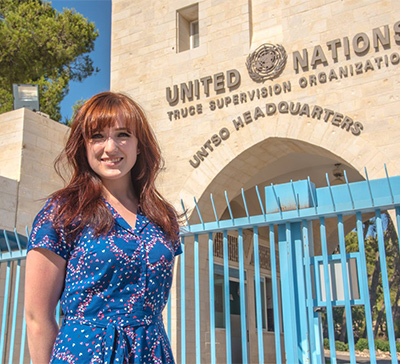
Stephanie received The Ronson Family Student Scholarship to Hebrew U for the summer of 2018, where she studied in the Coexistence in the Middle East Program.
Can you tell us about your program at Hebrew U?
I am a recipient of the Ronson Family Scholarship which allowed me to participate in the Coexistence in the Middle East program. This program focussed particularly on peace between the Palestinians and Israelis by using some of the key areas of conflict such as religion to forge tolerance and reconciliation. This program was unique from any other I have participated in, since it was highly interactive and we went on many field trips to see and hear first-hand, the various perspectives on the conflict. One of my favourite trips was the Peres Centre for Peace where we had presentations and the opportunity to ask questions of Mr. Nadav Tamir (the policy advisor to Shimon Peres) and the external relations and outreach coordinator, Lara Portnoy.
What I love about the work they do is how thoughtful they are in creating programs which are relevant to populations who are often overlooked in peace discussions, such as new mothers, who actually have an enormous role to play in passing on attitudes and stories to their children.
What new skills did you learn?
Studying at Hebrew University was incredible, since it allowed me to experience a culture different from my own in Israel, and understand both sides of the conflict on a deeper level than I could have from reading books in Canada. I believe my experiences also gave me new skills like the ability to identify and listen for someone’s needs when they are sharing traumatic and painful events. These skills are very relevant to my future goal of becoming a psychologist who specializes in war-related trauma.
I have become more aware of the colonial impact and oppression of First Nations in Canada, and wrote a paper contrasting their experiences with the Palestinians. I am so excited that one of my professors is sharing this paper with the Ambassador of Canada to Israel!
How did you grow from your experience at Hebrew U?
It is hard to decide which parts of my experience to share with you, since every moment was truly amazing. This experience stretched and grew me. Through it, my heart and compassion expanded for both sides. Without your assistance, this would not have been possible for me, so thank you, so much!
Stephanie received The Ronson Family Student Scholarship to Hebrew U for the summer of 2018, where she studied in the Coexistence in the Middle East Program.
Can you tell us about your program at Hebrew U?
I am a recipient of the Ronson Family Scholarship which allowed me to participate in the Coexistence in the Middle East program. This program focussed particularly on peace between the Palestinians and Israelis by using some of the key areas of conflict such as religion to forge tolerance and reconciliation. This program was unique from any other I have participated in, since it was highly interactive and we went on many field trips to see and hear first-hand, the various perspectives on the conflict. One of my favourite trips was the Peres Centre for Peace where we had presentations and the opportunity to ask questions of Mr. Nadav Tamir (the policy advisor to Shimon Peres) and the external relations and outreach coordinator, Lara Portnoy.
What I love about the work they do is how thoughtful they are in creating programs which are relevant to populations who are often overlooked in peace discussions, such as new mothers, who actually have an enormous role to play in passing on attitudes and stories to their children.
What new skills did you learn?
Studying at Hebrew University was incredible, since it allowed me to experience a culture different from my own in Israel, and understand both sides of the conflict on a deeper level than I could have from reading books in Canada. I believe my experiences also gave me new skills like the ability to identify and listen for someone’s needs when they are sharing traumatic and painful events. These skills are very relevant to my future goal of becoming a psychologist who specializes in war-related trauma.
I have become more aware of the colonial impact and oppression of First Nations in Canada, and wrote a paper contrasting their experiences with the Palestinians. I am so excited that one of my professors is sharing this paper with the Ambassador of Canada to Israel!
How did you grow from your experience at Hebrew U?
It is hard to decide which parts of my experience to share with you, since every moment was truly amazing. This experience stretched and grew me. Through it, my heart and compassion expanded for both sides. Without your assistance, this would not have been possible for me, so thank you, so much!
Jonathan Mostovy
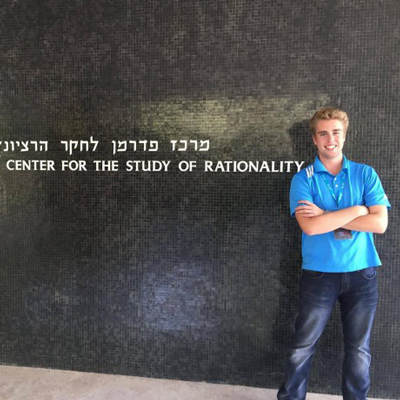
Jonathan Mostovy received an Einstein Legacy Student Scholarship to Hebrew U in the summer of 2015 where he studied Economics and Game Theory.
What was your most memorable experience at Hebrew U?
Having the one-on-one guidance/mentorship from my research project advisor was a particularly learned and exciting experience. Also, the many trips exploring the beautiful country was incredible – seeing Masada, the Golan Heights, Tel Aviv, The Old City, Haifa etc.
How did your time there make an impact on your development professionally and/or personally?
My program at Hebrew U was my first rigorous introduction to academic research. I had amassed a multitude of new tools which I have been extensively using throughout my own research and school work. As for personally, I had the opportunity to meet and learn from professors and fellow students who are truly at the pinnacle of their own fields.
What are you doing now?
I am currently pursuing an M.Sc. in Mathematics at the University of Toronto with the intention of continuing onto a Ph.D. (also in Mathematics) next year.
Rachel Zeliger
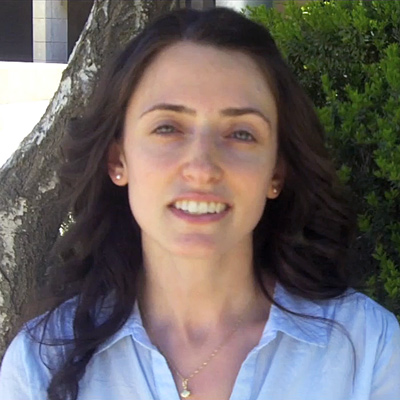
Rachel Zeliger received an Einstein Legacy Student Scholarship to Hebrew U in 2012.
When did you go to Hebrew U?
I’m currently still a student at Hebrew U in the LLD program. The Einstein scholarship provided me with much needed financial support so that I could complete my LLM thesis after making aliyah to Israel, which allowed me to gain entry into the LLD program. Without a doubt, I would not have been able to gain acceptance into the LLD program without it.
What is your field of study there?
PhD in Law (My focus is on national laws restricting the foreign funding of civil society organizations)
What was your most memorable experience at Hebrew U so far?
There isn’t one experience in particular. Rather, the people (both professors and students) that I’ve met here have been exceptional. Hebrew U attracts scholars and students from all over the world, granting its students the ability to interact with people from different countries and cultures, and to truly gain an interdisciplinary outlook in their field of study.
How did your time there make an impact on your development professionally and/or personally?
My time here continues to make an impact on my professional development. Last year, I was accepted into a joint doctoral program between Hebrew University and Freie Universitat in Berlin (Human Rights Under Pressure). As a doctoral fellow in this program, I am exposed to lectures and one-on-one meetings with world renowned scholars in various fields pertaining to the study of human rights. I could not ask for a better program to complete my doctoral studies in.
Stephen Lerner
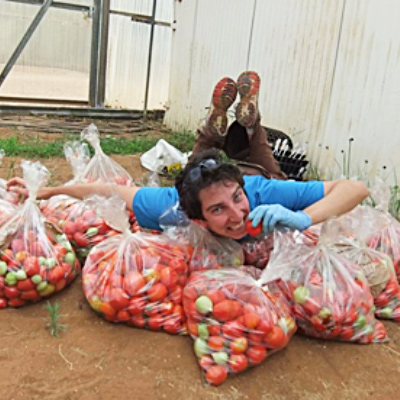
Stephen Lerner received an Einstein Legacy Student Scholarship in 2012.
What did you study at Hebrew U?
I did my Masters in Biotechnology at the Hebrew University’s Faculty of Agriculture in Rechovot between 2011-2014.
My field of study was the interface of biotechnology and agriculture. We were examining genes that play a role in water regulation. The goal was to breed crops that grow more with less water.
What was your most memorable experience at Hebrew U?
Every day was memorable. It was certainly an honor to be able to take part in such a noble enterprise as trying to stave off world hunger through our research.
But if I had to give one moment, it was certainly the time we had taken an incredibly difficult exam in Molecular Biology. A few days later we received emails with our grades. I went to town with some classmates, we all got very tipsy and then opened the emails together. I had passed, and then apparently started dancing on the tables out of happiness.
Another great moment was when I was able to present my research at a really cool conference in Berlin on the 25th anniversary of the fall of the Berlin wall.
What are you doing now?
Currently, I work full time at an amazing 7-year-old Israel based company called Signals Analytics. We do pharmaceutical consulting and our clients include all of the world’s top drug companies. J&J, Pfizer, Merck, Roche. Certainly, the highlight of my career was advising the Head of Diabetes North America for one of our clients. That division easily has over 1B$ dollars in revenue a year, and he was asking me for advice, that was pretty cool.
Matthew Beattie
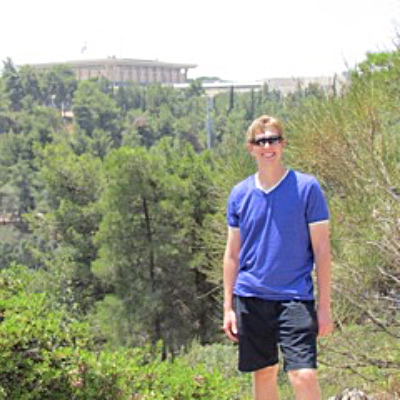
Matthew Beattie received an Einstein Legacy Student Scholarship in 2013 for a summer program at Hebrew U called the History of the Arab-Israeli Conflict.
What was your most memorable experience at Hebrew U?
By far, the most memorable experience that I had during my time studying at Hebrew U was on the night of Tisha B’Av. Several students that I was studying with invited me to attend a service at the Great Synagogue and then come into the Old City with them to experience the evening. I was taken onto the roof of a Yeshiva in the Old City where we could look out over the Western Wall Plaza where thousands of people had gathered to commemorate the day. Some of those studying at the Yeshiva were from Toronto and they explained the history and meaning of this date in the Jewish calendar and all that the people gathered were remembering.
As a person of the Christian faith, I felt privileged to experience this evening with my Jewish friends and be given a view into the history and suffering of their people.
It was also Ramadan at this time and so the Temple Mount, just beyond the Wall was absolutely packed with those celebrating. It was an incredibly moving experience for me, to witness these two people groups whose conflict I was studying, both gathered in such large numbers, with only the Wall between them. This is the memory that stands out most vividly when I recall my time studying at Hebrew U.
How did your time there make an impact on your development professionally and/or personally?
Spending the summer studying at Hebrew University was the highlight of my undergraduate education. It was an educational experience that greatly expanded my worldview and I consider it to be some of the most valuable education I have ever received. I also had the opportunity while there to meet and connect with a number of Osgoode Law Students who were studying at Hebrew U.
Several of these individuals later became mentors to me and we still often speak of our time spent together in Israel.
What are you doing now?
I am currently in my final year of a four-year JD/MBA degree at Osgoode Hall Law School and the Schulich School of Business. Upon graduating in the Spring of 2018, I will be returning to BMO Capital Markets as an Investment Banking Associate, where I spent the previous summer.